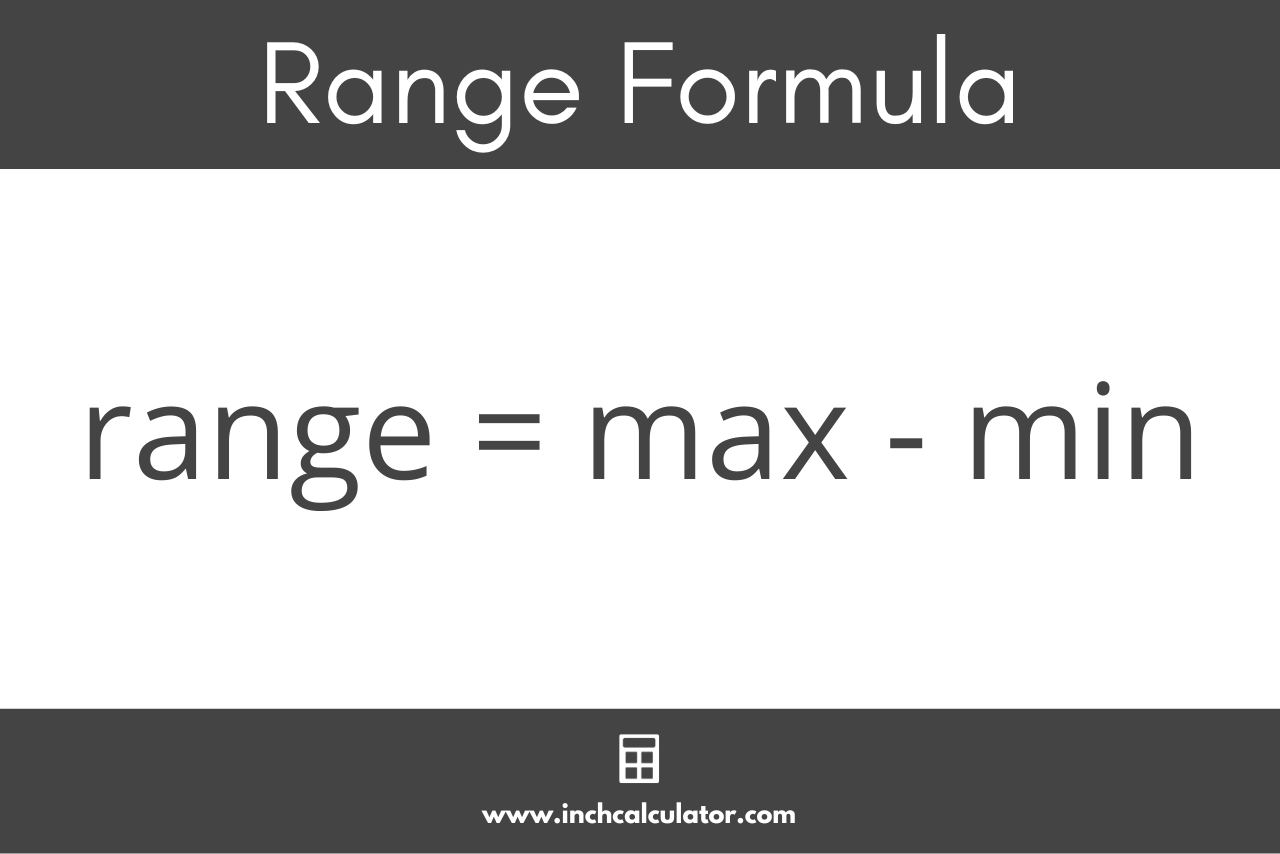Range Calculator
Find the range for a set of data by entering the numbers in the data set below. Read below to learn more about how to find the range.
Results:
| Range: | |
|---|---|
| Min: | |
| Max: |
Steps to Solve
Step One: Find the Min and Max Values
Min = ?
Max = ?
Step Two: Find the Range
Range = Max - Min
How to Find Range
In statistics, the range is the difference between the smallest and largest numbers in a data set. The range is used to measure the spread or dispersion between numbers in a set of values.
That said, if the data has extreme outliers or seems to come from a distribution with a “heavy tail,” then the range might overstate how dispersed most of the data really is. In such a situation, a measure such as interquartile range or standard deviation might be preferred.
The range is closely related to the midrange, which is a measure of center, or central tendency, of the data.
A very large range indicates that the data might be spread out or that there are outliers, while a small range means the data are close together.
One common (if implicit) use of the range is in making histograms, which are commonly used to visualize the entire distribution of some set of values.
Range Formula
Since the range is the difference between the minimum and maximum numbers in the data, the range formula is:
range = max – min
Where:
max = highest number
min = lowest number
Thus, the range is equal to the maximum value in the data minus the minimum value.

The first step to finding the range is to identify the smallest and largest numbers in the data. We’ll refer to these as the min and max in formulas.
Then, you can subtract the smallest from the largest to find the range.
For example, let’s find the range for the numbers [2,12,43,72]
min = 2
max = 72
range = 72 – 2 = 70
In this example, the range is 70, which is a large spread between the highest and lowest numbers.
Next, let’s find the range for the numbers [19,20,22,23]
min = 19
max = 23
range = 23 – 19 = 4
The range in this example is 4, which is a considerably smaller spread than the previous example.
You might also be interested in our mean, median, and mode calculator to find additional measurements about your data.


